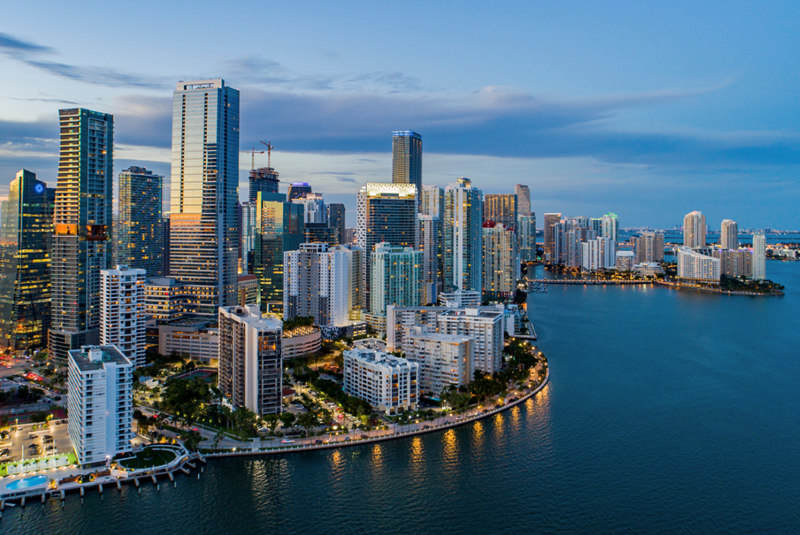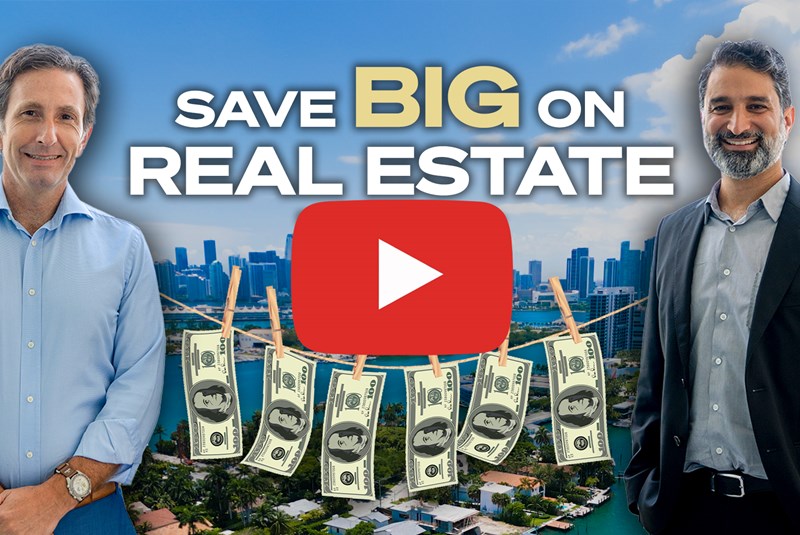What is a Short Sale? Your FAQs Answered

Jun 17, 2020 June 17, 2020
So you've seen an ad for a short sale property with a great price tag, but chose to skip it because you've heard they're not worth the hassle? Or, maybe you've missed a few mortgage payments and don't want your credit to take a hit with a foreclosure? In both scenarios, it may be worth your while to explore a short sale. Irrespective of what you've heard, short sales have turned out to be good opportunities for both buyers and sellers, and at times investors have ended up getting a good deal out of it.
Below, we've answered the most frequently asked questions about short sales to help you get started:
Table of Contents
- What is a Short Sale?
- What is the Difference Between a Short Sale and Traditional Sale?
- Who Initiates a Short Sale?
- Why Would A Bank/Lender Agree to an Amount Less than What is Owed?
- What Happens to the Mortgage Difference Pending after a Short Sale?
- What Is the Difference Between a Short Sale and Foreclosure?
- What are the General Steps in a Short Sale?
- How Long does it typically take for a Short Sale to Close?
- What does it Mean when a Condo/Home is Sold "As Is" in a Short Sale?
- Is there a Difference between a Short Sale on a Condo and Single-Family Home?
- Why do I need an Experienced Short Sale Agent to Handle the Transaction?
What is a Short Sale (in Real Estate)?
In real estate, a short sale is when a financially distressed property is sold for a price less than what is owed to its lender. It only works if the home's current market value is less than the full loan balance. So basically, the seller is "short" the amount of money needed to fully repay the bank or lender.
What is the Difference Between a Short Sale and Traditional Sale?
Though there are many differences between a short sale and regular sale, here are the 3 key points:
- Short sales do not generate enough profits to cover the full amount owed on the mortgage
- The contract doesn't just include a buyer and seller but needs to be approved by the seller's lender or bank
- Due to the processes involved, short sales take longer to close than a regular sale
Who Initiates a Short Sale?
It is the homeowner who always initiates a short sale (sometimes their lender might suggest it as an option), in either of the following scenarios:
- The homeowner is so far behind on mortgage payments that it is unlikely they will catch up due to financial hardship
- The housing market has dipped so much that the house value has erased the equity in the home, the seller has to sell and will owe more than the home is worth.
- The homeowner has received a notice of foreclosure
The main motivation for a homeowner trying to sell their single-family home or condo as a short sale is to avoid the negative impact a foreclosure will have on their credit score and to generally have a more graceful exit from the property. Also, a short sale allows the homeowner some control over the selling process. However, even though a short sale is initiated by the homeowner, it needs to be approved by the lender to take place, as none of the proceeds are intended for the seller.
Why Would A Bank/Lender Agree to an Amount Less than What is Owed?
For banks and other lending institutions, foreclosures are an expensive and time-consuming process. A short sale helps avoid putting another foreclosed home on the books, as well as avoid all the costs that come with the legal proceedings and maintenance of the property until it is sold. Also, it reduces the chances of a borrower trashing the property on their way out.
However, make no mistake, a bank can still easily reject an application from a homeowner to go through with a short sale if they feel the homeowner is not in financial need or if they don't agree with the price the seller plans to sell it.
What Happens to the Mortgage Difference Pending after a Short Sale?
The bank or lender has two ways of dealing with the amount falling "short" between the mortgage amount and sales price in such a case:
- First, the lender can choose to forgive the balance amount.
- Second, the lender can have a deficiency judgment (which is very much legal in Florida) against the homeowner, obligating him/her to pay back the difference.
Whatever the lender chooses to do, it is communicated in advance to the seller.
Buyers generally do not need to concern themselves with the "short" amount; they only need to focus on their purchase price and typical closing costs.
What is the Difference Between a Short Sale and Foreclosure?
Though both a short sale and foreclosure are not ideal situations and mean that the homeowner is behind on his/her mortgage payments, there are several differences between the two:
Short Sale | Foreclosure |
It is a voluntary action taken by the homeowner | It is an involuntary action taken against the homeowner |
It is initiated by the homeowner | It is initiated by the lender |
The homeowner can continue living in the property until it is sold | The lender evicts the homeowner upon taking possession at the courts. |
The homeowner is involved in the showing and sale process | Only the lender controls the sale process, the homeowner is no longer involved |
Sellers can purchase another home sometimes almost immediately, with certain restrictions. Short sales have less of a negative credit impact than a foreclosure | It leaves a negative impact on the homeowner's credit score, and most need to wait at least 5 years before buying another home |
It is a longer process requiring multiple approvals along the way (weeks or months) | It takes months for the foreclosure process to end at the courts, but once the lender takes possession the sale can happen quickly. |
What are the General Steps in a Short Sale?
We'll be looking into the detailed process for buyers and sellers in separate blogs to follow, however, here are the 5 general steps to a short sale:
- Engage a Professional for Pre-negotiation. This is where the homeowner discusses with a real estate agent, attorney, and/or tax consultant about the costs and likelihood of the success of their short sale. The homeowner also needs to consult with their lender to see if they can meet with their loss mitigation department to pre-negotiate for a viable alternative solution, including a possible mortgage renegotiation or loan modification.
- Submit a Short Sale Package to the Bank. Once the lender agrees to the short sale, the homeowner has to submit a "short sale package" of documents inclusive of proof that he/she can no longer make the mortgage payments due to financial hardships. This process also involves several steps, including an internal review of the value of the property in a process called a broker price opinion (BPO). This review process can take a few weeks or months for final approval and issuance of the short sale approval letter. NOTE: Sometimes the lender will want a purchase offer before reviewing a short sale package.
- Listing, Marketing, and Submitting a Sales Contract. Next, once the short sale has been approved, the sellers' agent lists and markets the property. Once a suitable buyer is found, a sales contract is executed and submitted to the lender for approval.
NOTE: Some lenders can pre-approve a short sale and a price they are willing to accept before listing and marketing begins. - Review by the Lender. The ball is now in the lender/bank's court, where it conducts its due diligence and can then respond in a number of ways – approve, reject (but outline a few conditions they agree to), reject, or not respond at all.
- Response from the Lender and the Way Forward. If the lender's response is positive, then the seller will present it to the prospective buyer (with possible counters and term changes to the original accepted sales offer) who can choose to accept, counter, or reject (making the seller start over with a new buyer). In case all can agree on the final terms, the buyer usually has 30 days to close on the property and take possession. The seller is able to move on from the sale of the property and not carry the burden of having to get foreclosed on by the lender.
Remember, in case there are multiple lien holders to the property, the process needs to be repeated for each one of them, and the timeline will vary for all.
How Long does it typically take for a Short Sale to Close?
Considering the seller does not have a final say in the approval of a short sale offer, it purely depends on the bank/lender as to how much time they take.
It takes as little as a week to get short sale approval from a lender, but in some cases can take 1 month or more. Then, if you add another 30 days or less to find a buyer, that gets you up to approximately 2-3 months for the whole process.
However, one must remember that there's no guarantee that the offer will be accepted by the lender unless it is a pre-approved short sale and the price you are offering is of market value or a value pre-determined by the approving lender.
What does it Mean when a Condo/Home is Sold "As Is" in a Short Sale?
In a traditional sale, a buyer has full rights to an inspection. They can then renegotiate to accommodate the financial implications of any repairs or have the repairs done before moving in. However, that is not always the case in a short sale.
Considering the lender is already losing money in such a sale and does not own it (it is still owned by the seller until closing), lenders and sellers will not make any repairs to the home such as fixing broken windows, patching a leaking roof, or other issues. This means a buyer will be purchasing the property in an "as-is" condition. So, a buyer should be well prepared to assess the condition of the property as much as possible and know that repairs may be needed in the future. The buyer will typically have a reasonable inspection period to inspect the property and back out without penalty if the condition is not satisfactory.
Additionally, sometimes short sales require the buyer to accept responsibility for any other liens or judgments against the home/condo. In that case, a buyer should do a title search on the property to know exactly what they're getting into. Realtors have tools to be able to search for what liens are in place on a property to help the buyers know. Additionally, once under contract, your real estate attorney will check for all outstanding liens on the property as part of the closing process. The sale contracts typically have clauses that protect the buyer from having to assume any responsibility of unknown issues, but it's better to do research in advance so as not to be disappointed when you are almost at the finish line.
Is there a Difference between a Short Sale on a Condo and Single-Family Home?
Yes, condo or HOA fees. If the seller is in arrears on their HOA fees, someone has to pay those fees at closing. The lender will typically not pay them, the seller typically doesn't have money to pay them either, and so it usually will be the responsibility of the buyer. So it's important to find out those fees upfront and factor that into the purchase price the buyer is willing to pay.
Why do I need an Experienced Short Sale Agent to Handle the Transaction?
Whether you're a seller or buyer of a short sale property, you will need to work with a real estate agent experienced in handling this particular type of sale. Considering that the short sale process comes with additional paperwork on top of regular sale documents, only an experienced agent will be able to guide you through its intricacies and complexities in a timely manner and with the best outcome for all parties involved.
Additionally, as a buyer, much of your success in materializing a short sale lies in the correct pricing of your offer. An experienced short sale agent will not only help you set the right price but also have a good idea of what will make the bank accept or make a counteroffer - considering banks have the option of rejecting applications.
Further, an experienced short sale agent will have access to expert real estate attorneys and law firms who know how to negotiate with banks and other lenders on certain terms of the offer, making a good case for your offer as a seller or buyer. So, it is highly recommended to ask the agent you're interviewing about the kind of experience they have in successfully closing short sales.
Looking to sell or buy a short sale condo or house? Call us at (786) 930-4220 and an expert short sale agent will be happy to assist you.
Share your thoughts with us
Your Miami Condo Awaits
Recent Posts








